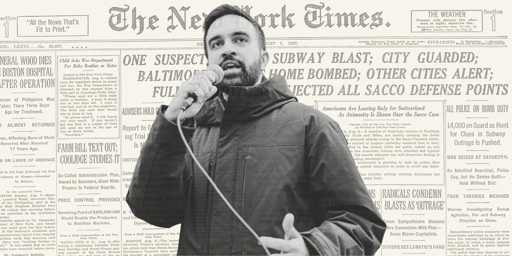- cross-posted to:
- hackernews@lemmy.bestiver.se
- cross-posted to:
- hackernews@lemmy.bestiver.se
I’m not sure how I landed here, so apologies if this is a repost. It’s quite worth the read. If anyone still believes the NYT is worth the paper it’s printed on, this is a great example of why it isn’t.
It’s remarkable, the people you’ll hear from. Teach for even a little while at an expensive institution—the term they tend to prefer is “elite”—and odds are that eventually someone who was a student there, who maybe resided only on the far periphery of your professional orbit, will become one or another kind of famous. At that point, out of the vast and silent ether, messages will come glowing into your inbox one after another. Do you remember this person? they will say. Was he your student? Did you work with him? We’re hoping for some insight—would it be possible for us to talk for a bit?
I taught at a place called Bowdoin College for 16 years, and during the last of those there was a student in attendance you’ve perhaps heard of. His name is Zohran Mamdani. And so, shortly after his startling, spirit-lifting victory in the primary last spring, the gentle flood of inquiries commenced. Word had gotten out not only that he went to Bowdoin—again, a very pricey, very wealthy, quite comprehensively the-thing-that-it-is small liberal arts college on the East Coast—but that, while there, he had majored in something called “Africana Studies.” You can probably see where this is going.
The first few messages wondered if I knew him (I don’t think I did, though I certainly had students who did, and do), if I taught him (possibly? but in truth not that I remembered), but mostly if I could say something about what he might have been reading and doing and studying, there in his time at this little college on the coast of Maine. More than once, the name “Frantz Fanon” was broached—which had the virtue of certain hand-showing clarity.
Emphasis mine. They started with framing that had to be met, no matter how wrong it was.



I’m used to this sort of dense prose, so it didn’t feel like a slog to me. Yeah, academic writing can be tedious, and it tends to arrive at conclusions more obliquely, but these are still important voices to hear. When I go full Voice of God from my time writing editorials, the reception is about as warm – but it’s a skill. You don’t complain about how a carpenter saws, so complaining about how a writer writes seems rather dismissive.
There is a difference between getting to a conclusion obliquely and swerving all over the road.
I don’t exactly have the most concise writing my self, but I try to keep the subject in the same hemisphere as the predicate.
Its hosted on a site called lithub, the author is actually an academic. Maybe what you wanted was a more concise op-ed but its just not what the gentleman wrote.
Not to be a pedant, but “myself” is solid.